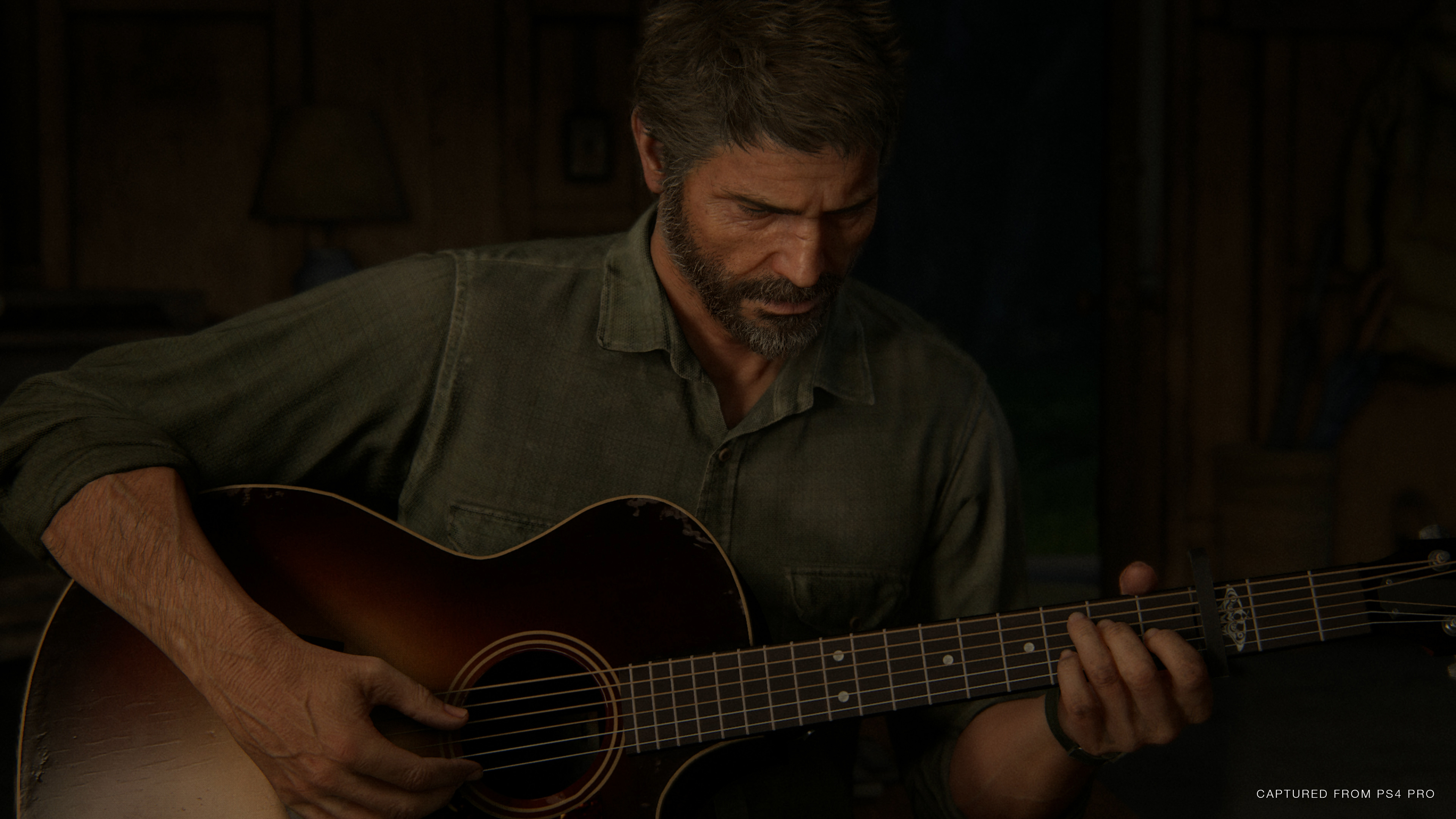It’s now well over a month since Naughty Dog’s sequel launched worldwide. Enough time for the game to be completed, its heart-pounding events absorbed and mulled over. If you’ve yet to watch the credits roll though, an obvious disclaimer: heavy spoilers from here on in.
If the 2013 original focused on the bonds that connect us, this sequel is a study on the cycles of violence that can drive us. Director Neil Druckmann in the foreword of The Art of The Last of Us Part II book asks: “how far would you go to bring justice to the ones you love? How would the experience change you? What kind of repercussions would follow?”
Naughty Dog’s answers to those are as disturbing as they are fascinating. They’re also uncomfortably, instantly, familiar. The story may unfold in an alternate, ravaged modern day America; the circumstances that drive these characters extreme. Yet their motivations and responses are soaked in realism and easy to empathise with. No less realistic yet infinitely harder to achieve is understanding another’s perspective: which makes the surprise dual narrative such a masterstroke.
It’s tough, that slow realisation that the whiplash switch to Abby isn’t a brief mid-story intermission but in fact the start of the other half of the game. Yet, for me, by its conclusion the studio had achieved its goal: I was as fully invested in her story as I was Ellie’s. And I was now terrified — riveted — as to what would result when these two finally collided.
The soundtrack is stellar throughout, be it helping propel the on-screen action, harmonising with character body language in a particular scene or surprisingly pivoting into a touching rendition of an 80’s pop classic.
Maybe you were as conflicted as I during that tense theatre fight or the final, desperate shoreline clash. Perhaps you remained ever a staunch defender of one perspective, or found yourself switching loyalties. Ultimately it provoked deep, genuine discussion — at least amongst those I’ve talked to — on themes I would never have expected to have faced in, for all intents and purposes, a summer blockbuster. Unsettling? Definitely. Important? Absolutely.
That investment was made all the more easy by one of the most impressive, realistic renderings of video game characters I’ve seen to date.
I’d continually fire up Photo Mode and pan in to examine facial reactions. A quiet moment of reflection during Abby’s hunt for Owen. Ellie’s emotional exhaustion evident on her sun-burnt face as she fought for survival once more. It’s the first game I’ve felt like I could see each character internally processing the events around them just by looking into their eyes. If you want to see for yourself, load up the Model Viewer and unlock Ellie and Abby’s first and last character models. Zoom in on their faces: it’s not just the physical scars. The emotional fallout of their respective, twined journeys are wrought there.
Sandbox environments pack upgrade secrets and offer multiple approaches to threats. They’re also a visual treat. Most times I explored just to savour the quiet beauty of the ruined cityscapes.
Realism permeates the combat system as well. Refined from the first game, the system can sublimely switch from tense stealth to all-out action in a heartbeat. Perfecting either approach takes time though.
You’re no better equipped than those you face and the odds are seldom in your favour. As with any title, clumsiness precedes mastery as you settle into its gameplay rhythms. That period of adjustment nicely plays into the sense of panic I’d have in these situations: shots missed as I flinch from fire returned, punches failing to hit their mark as I flailed wildly, struggling to combat my own fear.
Crucially the game never glorifies the violence inherent to surviving a post-apocalyptic world. Showstoppers featuring the original’s headline horrors there are (from the simple terror of a wire fence collapsing under the weight of a horde to the gut-clenching dread of the Rat King faceoff) but in Part II, Naughty Dog favours human conflict. With it comes names and faces and tense situations and difficult decisions.
Fitting for the game’s narrative, it also allowed the studio to effortlessly play (prey?) on my emotions, sweeping me through the powerful waves of blind revenge and depositing me onto a shore of questionable accountability as anger receded. Joy replaced with revulsion and eventually resignation at the needs for survival. At humanity’s natural schism, tribalism.
There is a power fantasy here. You can’t knock out a Clicker with a single punch or stealth past a patrol unnoticed without feeling a thrill. But there isn’t the expected catharsis, as XP unlocks and perfecting combat are carefully juxtaposed against a growing dread of powerlessness. Being — if not fully complicit — at least involved in two destructive paths of vengeance and the unrelenting cycle of violence they unleash. But messaging the tragedy inherent in that is an important one, the hope of self-realisation apparent. For Ellie, Abby and us.
This is storytelling at its best and action adventure at its finest.









